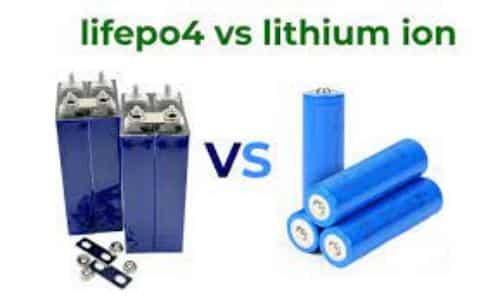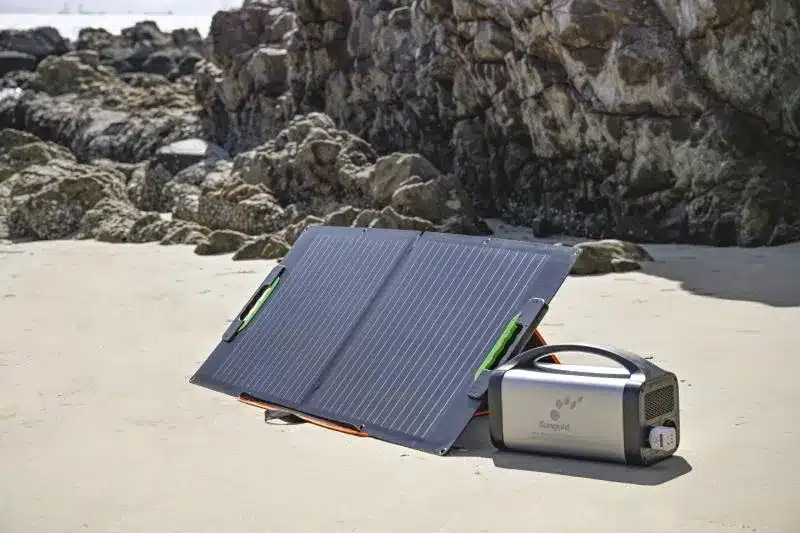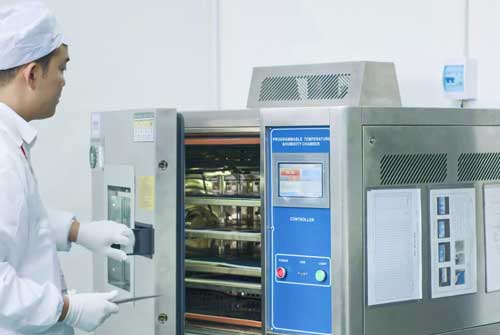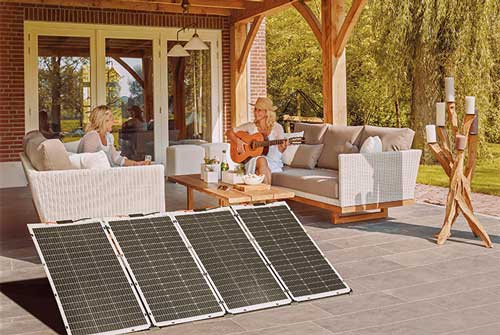Table of Contents
However, it is clear that there are still significant differences between them, which may affect their performance in certain scenarios. Therefore, it is crucial to understand the pros and cons of both types to facilitate our choice. Next, we’ll explore all aspects of lithium-ion vs LiFePO4 to help you make an informed decision.
What Is A LiFePO4 Battery?
The cathode of LiFePO4 batteries is made of lithium iron phosphate (LiFePO4), while the anode is typically made of carbon. The chemistry of LiFePO4 provides enhanced safety features compared to lithium-ion batteries, and the batteries are more stable and less prone to thermal runaway and overheating problems.
What Is A Lithium-Ion Battery?
Lithium-ion batteries are commonly used in power stations and electronic devices such as laptops, cameras and cell phones. They have a high energy storage capacity and a relatively low self-discharge rate.
LiFePO4 vs Lithium-Ion Batteries: What do They Differ
LiFePo4 and lithium-ion batteries are rechargeable batteries that use lithium ions to utilize and release electrical energy. While they are similar in many ways, they also have distinct differences.

Chemical Compositions
LiFePO4 batteries consist of lithium, iron and phosphate ions, making them relatively safer, more stable and lighter than conventional batteries. In contrast, lithium-ion batteries contain lithium metal and composite cathode materials such as nickel, cobalt or manganese, giving them high energy density and efficiency.
Safety
In contrast, lithium-ion batteries without a BMS or protection algorithm can catch fire or overheat when used improperly, and the stability is why lithium iron phosphate has become the standard for off-grid and solar applications.
Energy Density
Lithium-ion batteries typically have a higher energy density than LiFePO4. This means that Li-ion batteries can store more power and have a long battery life. Li-ion batteries are widely used in consumer electronics and electric vehicles for their high energy density, which extends battery life. However, LiFePO4 batteries are also well suited for specific applications, such as backup power, where safety and extended life are more important.
Lifespan
LiFePO4 batteries have a longer service life than lithium-ion batteries, lasting up to 10 years under the right conditions. On the other hand, lithium-ion batteries typically last about 2-3 years. This is due to the chemicals and materials used in their construction. Of course, lifespan is also affected by usage patterns, charging habits, and other factors, but the general consensus is that Li-FePO4 batteries are more durable than Li-Ion batteries.
Weights
LiFePO4 batteries tend to be heavier than Li-ion batteries due to their lower energy density. However, the exact weight of a battery will depend on its capacity and size. For example, batteries with high capacity and large dimensions are heavier.
Temperature Range
This factor makes LiFePO4 batteries an excellent choice for applications that require reliable and stable battery power in extreme conditions, such as off-grid solar systems, electric vehicles, and marine applications.
Voltage
Voltage directly affects the design of the battery pack and equipment voltage requirements. Generally, compared with Li-ion batteries, LiFePO4 batteries have a lower nominal voltage of 3.2V per cell and 3.6-3.7V per cell, so the difference in voltage is a decisive factor in the length of life.
Cost
The cost per watt-hour for LiFePO4 and lithium-ion batteries can vary widely depending on the manufacturer, market demand, and capacity.LiFePO4 batteries do not use nickel or cobalt, and the availability and price of these materials can fluctuate dramatically.LiFePO4 is still a relatively new battery chemistry, which means that there are fewer manufacturers and less supply, which can make LiFePO4 batteries to be slightly more expensive in terms of Wh/Wh.
Self-Discharge Rate
To follow best practices, keep your battery fully charged at least every few months to maintain optimal use.
LiFePO4 vs. Lithium Ion Batteries: Which One Is Right for You?

Type: Of the many factors to consider, the type of battery should be high on your list. Batteries come in a variety of types, including lithium iron phosphate, lithium ion
Capacity: The capacity of a battery is an important factor to consider as it determines the amount of energy that can be stored. When choosing a battery, it is important to assess your specific energy needs, which may include the devices you rely on, the frequency of use, and the duration for which you will need the battery.
Safety: Safety is another important factor to consider as batteries can pose a risk of fire and danger if not handled properly. It is recommended to use batteries that have safety features such as short circuit protection, thermal management, and overcharge prevention.
Lifespan: Finally, you must consider the lifespan of the battery. A good solar generator battery should last for several years without significant performance degradation. Investing in a reliable and long-lasting battery can save you money and give you peace of mind.
Plus, you can turn your battery bank power station into a solar generator by adding one or more solar panels!
Conclusion
They are the smart choice for those looking to power off-grid devices and appliances while saving money in the long term and limiting environmental impact.
FAQs
Are lithium iron phosphate batteries suitable for solar applications?
Lithium iron phosphate batteries are ideal for solar applications. They are efficient, advanced, and a great choice for anyone looking for a sustainable energy solution. They can be charged and discharged multiple times, making them a long-lasting power source. In addition, they are lightweight and small, making them easy to install and transport. Lithium Iron Phosphate batteries are designed to prevent overheating and explosions, ensuring safe use in solar applications.
Which battery is better for power stations: lithium iron phosphate or lithium ion?
While there are advantages to both, lithium iron phosphate batteries are often considered the better choice for power stations. This is because Li-FePO4 batteries are able to withstand deeper cycling without damage, ensuring that the batteries will perform well for years to come. In addition, Li-FePO4 batteries have a longer lifespan and are less likely to overheat or catch fire. Overall, while both types of batteries have their advantages, lithium iron phosphate batteries may be the safer and more reliable option.
Are lithium-ion and lithium iron phosphate batteries the same?
No. There are some differences between lithium-ion batteries and lithium iron phosphate batteries in terms of performance, chemistry, and longevity. For example, Li-FePO4 batteries have a longer lifespan, greater safety, and better thermal stability.
Are lithium iron phosphate batteries better than lithium ion batteries?
In most aspects, lithium iron phosphate batteries are superior to their lithium-ion counterparts. Li-FePO4 batteries are less prone to combustion and thermal runaway, making them safer for use in the home. In addition, the longer cycle life means that Li-FePO4 batteries last up to five times longer than Li-ion batteries.

























